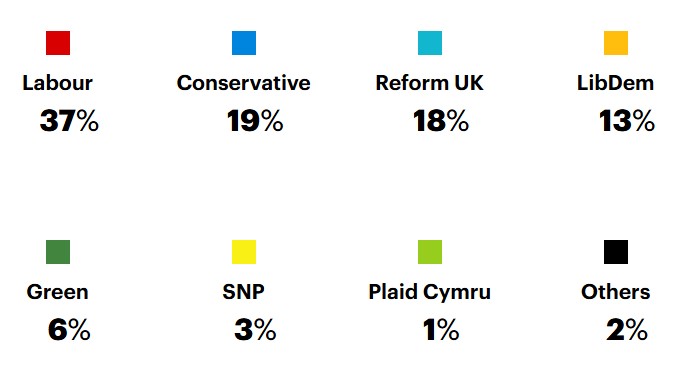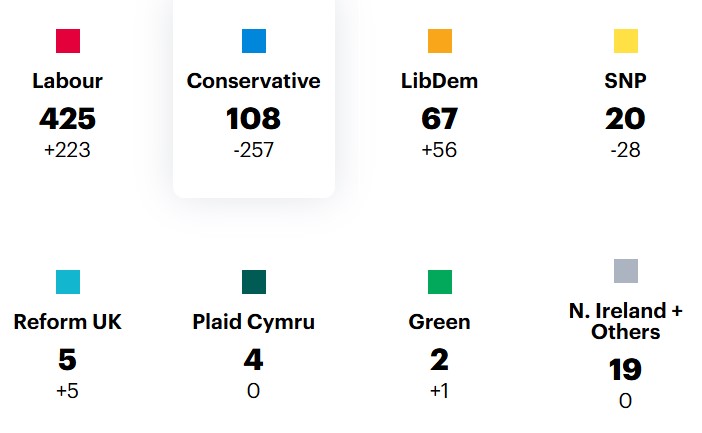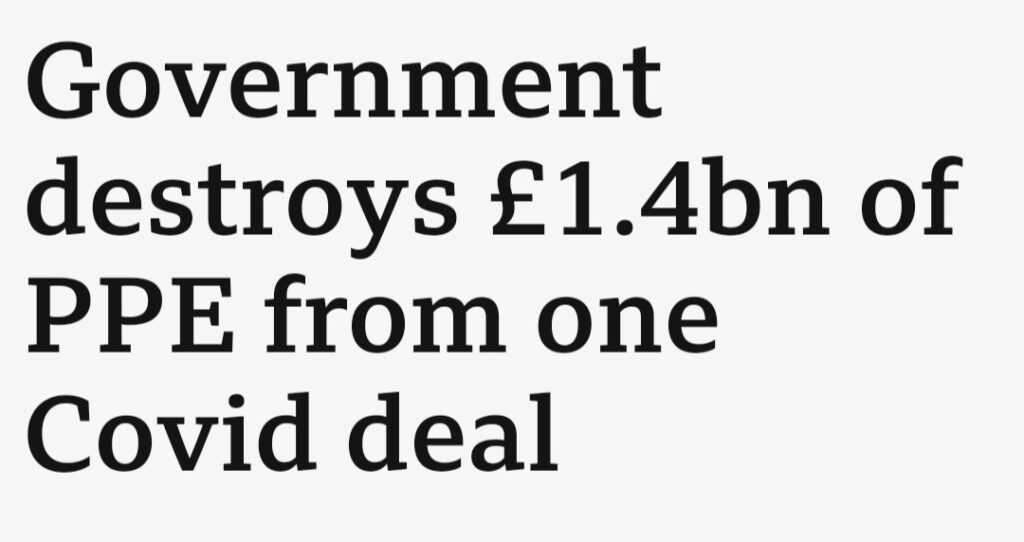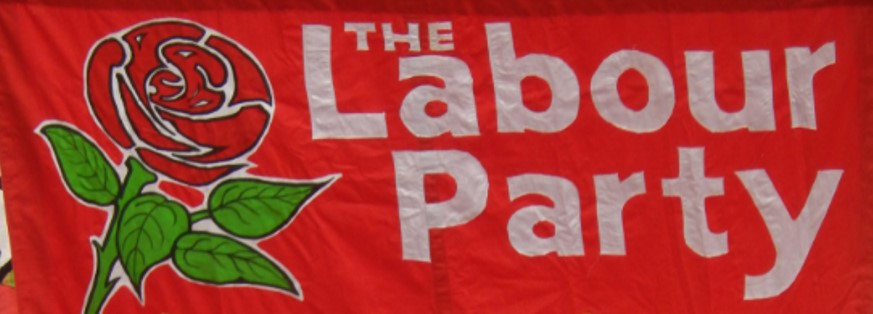This government is the most rotten, corrupt and incompetent in modern times, and despite widespread distrust of the Labour leadership, Labour is the only viable alternative to it. Despite our criticisms of the Labour leadership, Left Horizons supports a vote for Labour and winning the biggest possible majority. It is not only in the best interests of the working class to dump this government, but the heavier we can defeat for the Tories, the better it would be.
It is completely fitting that the backdrop to the election is yet another scandal right at the heart of the Tory Party, this time around betting on the election date. Several in Rishi Sunak’s immediate Downing Street entourage as well as Tory candidates seem to have used their ‘inside’ knowledge of the election date to make a killing at the bookies.
It is also an appropriate comment on Keir Starmer’s selection of new parliamentary candidates – the big majority of whom were ‘dropped’ onto local parties without their consent – that one of them has also been suspended for betting against himself in the election.
That so many Tories have been dragged into the betting scandal is in keeping with the whole philosophy of government, whose every policy decision is based around the personal enrichment of Tory MPs and peers, Tory Party donors, or the friends of the Tory Party in business. In the last fourteen years, while the Tories presided over an unprecedented increase in the use of foodbanks and in child poverty, while workers are having to run harder and harder just to stand still, the rich and super-rich have become immeasurably more wealthy.
The rich are laughing all the way to the bank
While public services have been run into the ground or dispensed with altogether, hedge fund managers, shareholders and the millionaire-class – none of whom rely on public services – have been laughing all the way to the bank. In British society today, millions of workers are simply not paid enough to buy all the necessities of everyday life: food, energy, housing, clothing and transport.
At long last, this poverty-creating, NHS-strangling, sewage-dumping, anti-democratic and corrupt government is coming to its end, and the only remaining question is how big the Labour majority will be. On July 4, unless there is some unlikely cataclysmic political event that no-one foresaw, Rishi Sunak will be booted out, along with scores of Tory MPs, including leading Cabinet members. The Tories are facing an historic defeat, almost certainly the heaviest in a century, and possible in the entire history of the Party.

Even in Scotland, the Tories face a situation they have already experienced, where they may fail to win a single seat. Labour is making a comeback in Scotland, where one of the main arguments of the SNP – that England will ‘always be Tory’ – has been demolished.
The SNP falls back on their arguments of thirty years ago
Desperate to cover up their own scandal-ridden government, the SNP have had to fall back on an old argument from thirty years ago – that Scotland needs a ‘voice’ in Westminster, but it will not prevent them losing seats to Labour in a nationwide tsunami of opposition to Rishi Sunak.

As Left Horizons has explained many times, the huge swing towards Labour that we will see this week is a result of the profound hatred of the Tories and because for millions Labour is seen as the only viable alternative government. The huge tidal wave of hatred of the Tories is the single most important factor in the election.
It is true that there is huge distrust of Keir Starmer, whose personal opinion poll ratings have been consistently below those of the party he leads. Indeed, the expected large swing to Labour is likely to mask a much higher rate of abstention than normal, given a widespread distrust of all mainstream politicians.
Some polls suggest that the combined vote of the two main parties will be the lowest recorded since 1918, when the Liberal Party were a major political force. But even a relatively low turnout will not affect the overall result, which looks like a Labour landslide.
What will be the effect of such a mammoth victory? Notwithstanding the fact that Keir Starmer and Shadow Chancellor, Rachel Reeves, are attempting to ‘manage down’ the expectations of a Labour government, the majority of those millions of voters who support Labour will take the key slogan of “change” as a promise of something different.

The election of a Starmer government will signal the beginning of a new phase in politics. It will be the end of one political crisis, and the beginning of a new and deeper one. Rishi Sunak and those around him are not just ‘incompetent managers’, they are the political representatives of an economic system in terminal decline and crisis.
A class numerically small, but powerful economically
Those who own, manage and control British capitalism – shareholders, CEOs, financiers, bankers and hedge funds – are a class that is numerically vanishingly small, but which, in economic and political terms, is overwhelmingly powerful, not least because of their control of the mainstream media.
But British capitalists have long since given up on either public or private investment, whether it is in infrastructure, industry, manufacturing or anything else productive. Their aim is to make money from money or to profit from government hand-outs and contracts. They have no other strategy, even if it means the impoverishment of workers and the decay of all aspects of public infrastructure.
From having once been the ‘workshop of the world’, British capitalism has become a third-rate economy, based on low productivity, low investment, and low pay, while the real profits are made from international money-laundering, speculation and finance. More profits are guaranteed from lucrative government contracts in Defence, construction, the NHS, public services and in other sectors, than by investment in productivity. For Tories, ‘government’, both locally and nationally, is a no more than a mechanism for outsourcing, a means of providing third-rate services or goods, in exchange for super-profits for private business.
If based on capitalism, Labour policies will lead to a new austerity
It is this economic system: decayed, sclerotic, atrophied and corrupt, that Keir Starmer and Rachel Reeves are going to inherit, and into which – they believe – they can breathe new life. They are wrong. They will not be able to dictate to the economic system; the economic system will dictate to them.
As long as the incoming Labour administration bases its policies on capitalism, it will inevitably mean a squeeze in living standards and further cuts in public services. Rachel Reeves and Keir Starmer are already talking about the possibility of having to make “hard choices”, but using different language to the Tories does not make the policy any different in essence – it means austerity under a different name.

It would be completely wrong to conclude from this, that there is ‘no difference’ between Labour and the Tories. The fundamental philosophy and neo-liberal economic outlook of the leaders may be the same, but unlike the Tories, the Labour Party has millions of affiliated trade union members as its foundation, and it is from these that there is always pressure for reforms and improvements in the lives of working families.
Under Harold Wilson and even Tony Blair, reforms were introduced which, at least temporarily, improved in the daily lives of workers. Health and Safety at Work, Employment legislation, Equal Pay legislation, Minimum Pay: all of these were introduced by Labour governments under the pressure of the trade union movement. The real guarantee of better wages and conditions is the presence of strong and militant trade unions, but it would be light-minded to ignore the significance of legislation in the daily lives of workers.
The key issue is Labour’s economic programme
It is likely that a Starmer administration, too, will introduce measures to improve the rights of trade unions. They will be offered as a quid pro quo for support from right-wing trade union leaders for the “hard choices” that Rachel Reeves will argue “have to be made”, and they will likely include improved rights that no trade union activist would oppose, notwithstanding that they could and should have been far more extensive.
The key issues for us are Labour’s economic and social policies. Keir Starmer and Rachel Reeves have convinced right wing trade union leaders, and to some extent their members and voters, that their ‘plan’ to generate economic growth will succeed where the Tories failed through the lack of a ‘plan’. But Labour’s cunning plan is wholly dependent on a pattern of economic growth that many economists think is just not going to happen.
As a scathing report from the Institute of Fiscal Studies (IFS) noted, both of the main parties are offering unrealistic promises and expectations. “Regardless of who takes office,” said the IFS director, ”they will — unless they get lucky — soon face a stark choice. Raise taxes by more than they have told us in their manifesto. Or implement cuts to some areas of spending. Or borrow more and be content for debt to rise for longer.”
Most Labour voters will expect meaningful change
Referring specifically to Labour’s plan to increase growth, the IFS deputy director commented, “Good policymaking can boost growth but it certainly can’t do it quickly”. Labour’s manifesto commitments to new public service spending, for example, on teacher recruitment and school breakfast clubs, the IFS describes as “trivial”.
Nevertheless, despite the warnings of difficult economic times ahead, the large majority of Labour voters will expect an improvement in their daily lives. The greater the majority, the heavier will be that weight of expectation on the shoulders of the Labour Cabinet. Even right-wing figures in the Labour Party, like former Premier, Gordon Brown, has a ‘shopping list’ of expectations, including abolition of the two-child limit on benefits, the restoration of SureStart, a serious attack on child poverty, and the taxation of the wealthy.
If this is the view of many on the right of the party, there will be an even more deeply-held view within the left and the trade union movement as a whole that real change is needed. As the General Secretary of a right-wing union said at his recent union conference, “change” will have to be meaningful.
“My challenge to Labour”, Gary Smith told GMB delegates, “is to recognise that ‘change’ can’t be just a snappy election slogan. It must be brought to life in the reality of government. People have had enough of the way their country is being run. They want a better future.”
We support the aspirations of workers for improvements in their lives
Our starting point has to be the needs of the working class and we support the aspirations of workers for concrete and permanent improvements in their lives. We should not be even remotely in the business of persuading workers to lower their expectations. On the contrary, in a modern, industrial society, we would argue that there is no material reason why the necessities of life cannot be provided at a reasonable cost for all.
It is the market system, capitalism, the organisation of society around the rent, interest and profits of a tiny number of greedy people – it is these things that deny workers the necessities of life.

Left Horizons believes that the only guarantee of improvement in the lives of workers is through socialist measures. They should come from a socialist Labour government committed to mobilising the enormous power and breadth of the labour movement to impose measures against the vested interests of capitalism.
Such measures would include bringing all utilities, Rail, Royal Mail and the assets of the big banks, finance houses and major industries into democratic public ownership. These great economic levers – the real beating heart of any modern economy – should have their resources, workforce and productive capacity deployed democratically in a planned and organised fashion, to benefit the whole population.
A fully public NHS free of private profiteering
Land, labour and materials can be planned to build millions of homes, instead of leaving it to the ‘market’ which creates a permanent and artificial shortage to keep up profits. Publicly-owned utilities can provide water, electricity, gas and IT infrastructure, without billions being hived off in profits. A fully public NHS, free of private profiteering and PFI scams, can pay workers decent wages, fill the tens of thousands of vacancies and allow waiting lists to be cut.
A socialist programme is the only means of alleviating the insecurities and uncertainties that are the blight of working class people today. But such policies are a million miles removed from the outlook of this Labour leadership. Moreover, we must also accept that there is not yet a generalised understanding of the need for such policies among the many millions who are going to vote Labour.
The socialist transformation of society is a burning necessity, but it ultimately depends on the development of a mass support for socialist ideas and that mass movement is predicated on dispelling the illusion that capitalism can be ‘better managed’ by Starmer and Reeves. The only way that can be done is through the experience of a majority Labour government which bases itself on precisely those ideas.
If Keir Starmer and Rachel Reeves – as seems certain – base their policies on attempting to ‘manage capitalism’, then the hope for reforms will give way to the reality of counter-reforms. When that happens, there will be a shift in the outlook among those who backed Labour and there will be howls of outrage, especially among trade union members. It will be within the labour movement, not only outside of it, that renewed opposition will develop to the outlook of Labour’s right wing.
We support a vote for Labour and a large majority
The lived experience of a government led by right-wing Labour is a necessary historical step towards the growth of genuine socialist ideas in the labour movement and for that reason alone we must support the election of a Labour government, even under Keir Starmer. That is why we support a vote for Labour and the achievement of the largest majority possible.
We can understand the frustration and impatience of those – many younger voters, especially – who are repelled by Starmer’s abandonment of climate-change policies and have turned, instead, towards the Green Party, increasing the likelihood that the Greens will win a few more seats than before. That, in our opinion, is a dead-end, because genuine ‘green’ policies have to have a socialist content to have any real meaning.
We also understand those workers who have been disgusted by Starmer’s unstinting support for Israel and his apparent indifference to the genocide in Gaza. It is as a result of this that Labour will lose the support of thousands of younger and Muslim voters, many of whom will turn instead to ‘independents’ who are specifically linking their programme to the Gaza war.
The anger of those who have abandoned Labour over these issues is completely understandable, but it is not likely to make a dent in Labour’s majority, and it is unlikely that any of these independent, anti-Labour candidates will be elected.
Too many lefts inhabit a social media bubble
What is unforgiveable, however, are the comments of many more experienced ‘lefts’ who are so obsessed with the rightward move of the Labour leadership under Starmer that they have lost all sense of proportion. Their rantings are most notable in the social media bubble, removed from the daily lives of real people. One allegedly ‘socialist’ website, for example, even carried a post – by the founder of the website no less – saying, “Whatever you vote…Do not vote for Labour”. Really? Lib-Dem? Reform UK?
Some of these lefts, without any political compass or sense of direction have even fallen into supporting Reform UK, or George Galloway’s mis-named ‘Workers’ Party’. There are even some supposed ‘lefts’ who argue that a Labour government with a small majority is the best outcome for workers, although they do not specify which particular Tory MPs that they would like us to save.
Across the country, there are dozens of candidates standing against Labour in protest against Starmer’s shift of Labour to the right, and specifically on his policy on Gaza. Some of these may have a more or less correct view on the issue of Palestine, but then combine this with completely reactionary views on social issues, and are undeserving of any socialist support.
Bewildering varieties of ultra-lefts
Neither is it helping the “cause” of the ultra-lefts’ opposition to Labour that in so many cases there are different – and for most workers, bewildering – varieties of ultra-lefts contesting the same seats. None of these independents are likely to come anywhere near getting elected, and most will lose their deposits. They are out of touch with the mood of workers in general, who only want to see the end of this government and who see Labour as the only viable alternative.
Some of the opposition to Labour comes from disbarred former candidates. Most notably, of course, in Islington North, Labour’s former leader, Jeremy Corbyn, has a long-established, passionate and widespread base of support. He will understandably be seen by many Labour members and supporters as the “real” Labour candidate and very large numbers of activists have volunteered to help his campaign, in which he is effectively running on the basis of the 2017 manifesto – For the Many not the Few. Yet even this may not win him the seat against the enormous national tide of opinion for Labour.
Faiza Shaheen, in Chingford and Woodford Green in north-east London, was also suddenly dumped as candidate days before the election. Although a popular local figure, with a very large and enthusiastic group of volunteers including very many ex-Labour activists, she seems to be mainly basing her ‘independent’ campaign on her personal links with the community rather than a clear socialist programme. She may well poll better than many independents, but will find it much more difficult than Corbyn, with his 40 years as MP behind him, to take the seat. It is thanks to the factionalism of Labour’s right wing that the election could let the ex-Tory leader Ian Duncan Smith hold onto his seat.
The Labour left is dormant but far from dead
This election will mark an turning point and the beginning of a new stage in UK politics, one characterised by greater volatility and rapid swings between left and right. Not least, it will mean big changes inside the Labour Party, where the former freedoms of party members have been largely stifled and where the left is relatively dormant, although far from dead. Within the affiliated unions, however, the left is alive and kicking, and in a measurable period of time that left will reassert itself, beginning with the unions interventions in regional and national Labour conferences. It will be the unions – as it was in the past – that become the focus of opposition to the parliamentary wing of the Party.
When Labour is elected to office, it will be the trade unions, including those affiliated to Labour, where we will find the rich, fertile soil on which socialist ideas will grow once again. When a new left then develops in the Labour Party, as it will, it will plunge the party into new factional crises, with deep divisions and possible splits, principally between the parliamentarians and Labour bureaucracy on one side and the members and trade unions on the other.
It is not left conspirators in the Labour Party that will engineer these developments: they flow from the crisis of British capitalism and the inability of Labour’s right wing to provide answers to that crisis. The greater and more profound the crisis, the sharper will be the debates that will rage in the Party, and the socialist ideas of Left Horizons will play an essential part of those debates.



